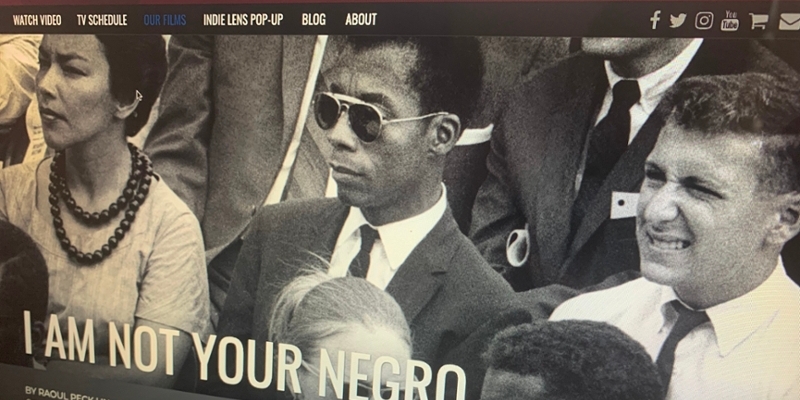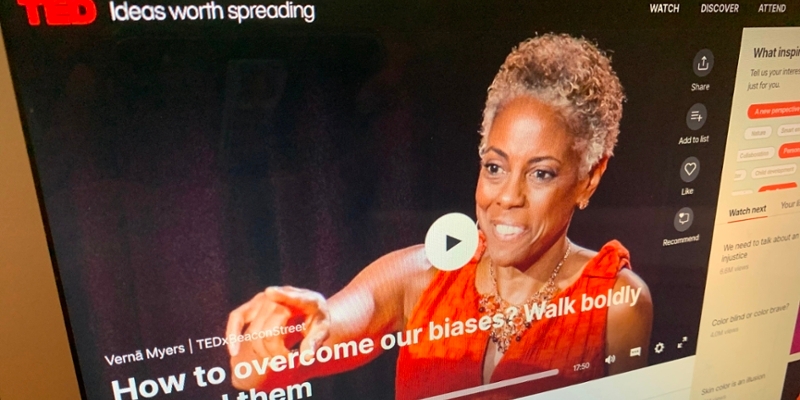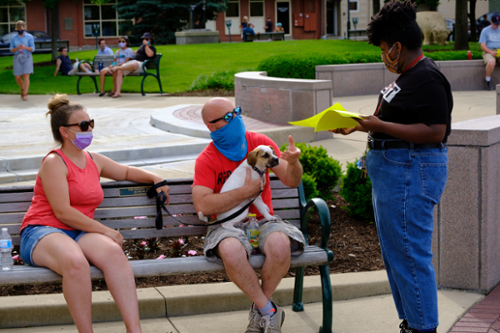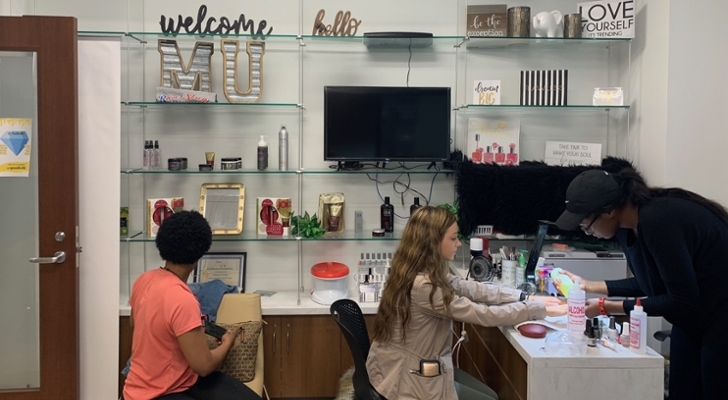Grappling with issues of injustice can impact your mental health - even more so for Black, Indigenous and People of Color, so if you need someone to talk to, please reach out to the Student Counseling Service or take advantage of the H.O.P.E. line (855-249-5649), Miami’s 24-hour mental health phone line.
Anti-Racism Resources
Staff in the Division of Student Life have curated this guide to help students who want to learn about race and racial injustice, and to advocate for change. These anti-racism resources are intended to meet you at various points in your journey, whether you are just starting to understand racial inequity or are already actively challenging oppressive systems.
Anti-racism work is a lifetime endeavor; it should not end with this guide. Please consider also visiting the Miami Libraries' Antiracism and Social Justice Resources.
Self-Care
Additional resources related to self-care
- Student Counseling Service - Cultural Issues
- 5 Black Mental Health Resources to Fight the Harmful Effects of Racism, Health.com
- Self-Care Tips for Black People Who Are Struggling With This Very Painful Week, Vice
- 35 Self-Care Tips, Dear Black Women Project
- 4 Ways to Cope with Racial Trauma Amid the Coronavirus Pandemic, CNBC
Learn
Here you'll find select books, articles, films and podcasts intended to help you deepen your understanding of racial injustice, focused particularly on anti-Black racism. Because there are so many books and articles out there, we've separated these lists into three categories to help you decide where to start: beginner, intermediate, and advanced.
Books
- Why Are All the Black Kids Sitting Together in the Cafeteria by Beverly Tatum
- Things Fall Apart by Chinua Achebe
- So You Want to Talk About Race by Ijeoma Oluo
- White Fragility by Robin Diangelo
- The Autobiography of Malcolm X by Malcolm X and Alex Haley
- How to be Antiracist by Ibram X. Kendi
Articles
- The Intersectionality Wars, Jane Coaston, Vox
- Who Gets to Be Afraid in America?, Ibram X. Kendi, The Atlantic
- White Privilege: Unpacking the Invisible Knapsack, Peggy McIntosh
- The 1619 Project, The New York Times
- Reparations H.R. 40, ACLU
Videos & Podcasts

Watch (features)
- 13th
- I am Not Your Negro, James Baldwin Documentary (flim on black oppression the black community)
- If Beale Street Could Talk (by Barry Jenkins), available on Hulu
- The Hate U Give

Watch (shorts)
- How to Overcome Our Biases? Walk Boldly Toward Them, Vernā Myer (Ted Talk)
- How I learned to Stop Worrying and Love Discussing Race, Jay Smooth (TedxHampshireCollege)

Listen
- Intersectionality Matters - podcast
- 1619 - podcasr from the New York Times
- Pod Save the People - podcast from Crooked Media
Self-Directed Activities
Speak Up
Your voice has the power to influence change - in both your immediate circle of friends, family, and peers, and in the larger community. While speaking up may look different from person to person, here are some resources to help you speak up and speak out against racial injustice.
Engage
When you are in a safe place to do so, challenge family, friends, or peers when they say racist or insensitive remarks. Engage in conversations about race and injustice. It's not easy to have these conversations; here are some resources to help you get started.
- How to Have a Courageous Conversation About Race, Henna Inam, Forbes
- How to Have That Tough Conversation About Race, Racism and Racial Identity, Allison Keyes, Smithsonian Magazine
- 10 Ways to Start a Conversation About Race, Race Forward
- Calling In: A Quick Guide on When and How, Sian Ferguson, Everday Feminism
- How to Tell Someone They Sound Racist, Jay Smooth YouTube Vidoe (3 mins)
Post
Another way to use your voice is to use your social platforms. You've probably seen the social media posts "silence is not an option." Start by following anti-racist accounts. You can also post on social media to show your support and to make a public commitment to do more.
Posting on social should not be your only action step against racism. Importantly, post with an open mind. While no one expects you to be perfect, be open to learning from your mistakes.
- 11 Anti-Racist Accounts That Are Worth Following, Meg Zukin, Variety
- Using Social Media, Racial Equity Tools
- White Silence on Social Media: Why Not Saying Anything is Actually Saying a Lot, Christina Capatides, CBSNews
- Who are the black squares and cutesy illustrations really for? Rebecca Jennings, Vox
- Social Media Graphics, Black Lives Matter
Vote
Take your voice to the polls. Find out which candidates support action you believe in and vote. Elected officials have the power to impact structural and systemic change, introduce new legislation, and appoint judges. Exercise your right to vote.
- Voting Rights, Miami University Office of the Dean of Students
- My Vote Everywhere for Miami University, Andrew Goodman Foundation
- Ohio Secretary of State
- The Voting Information Project
Take Action
Educating yourself and speaking up are definite first steps in being antiracist - but don't stop there! Here are some ideas for how you can take take your commitment further with concrete action steps.
Show Up

Activism can create real change in systems and policies. Find and support peaceful protests and rallies in your area - Facebook groups and events are a place to start. Remember we continue to be in the middle of a global pandemic. If you decide to attend a protest, please do so safely.
- How to Stay Safe While Protesting During a Pandemic, Consumer Reports
- Know Your Rights - Protesters' Rights, ACLU
Take a Class

Miami's Associated Student Government (ASG) compiled and posted a list of classes on Instagram that focus on Black and African history/culture and the Black experience in America and around the world. Do your own search as well through courselist.
Support

Your dollars - both donated and spent commercially can provide support to nonprofit organizations and prosocial businesses. Do your homework, find work you believe in, and show your support.
- Supporting Black-Owned Businesses, CNN business
- Where to Donate for Black Lives Matter, New York Magazine
- Where to Donate to Help Black People with Disabilities, Nylon
- 10 Ways to Support the Protests Outside of Bail Funds, Nylon
Contact
Contact those in power to express your beliefs. Urge them to make decisions that support racial equity. Ask what they are doing to enact change.
- How to Contact your Local Officials, USA.gov
- Visit Change.org to review and sign petitions you believe in
- 5 ways to contact your elected officials and make your voice heard, USA Today
Contact Us
The Division of Student Life creates transformational opportunities, inclusive environments, and meaningful connections that maximize student growth, learning, and success.
110 Warfield Hall
Oxford, OH 45056
513-529-5526
Directions | Offices and Services